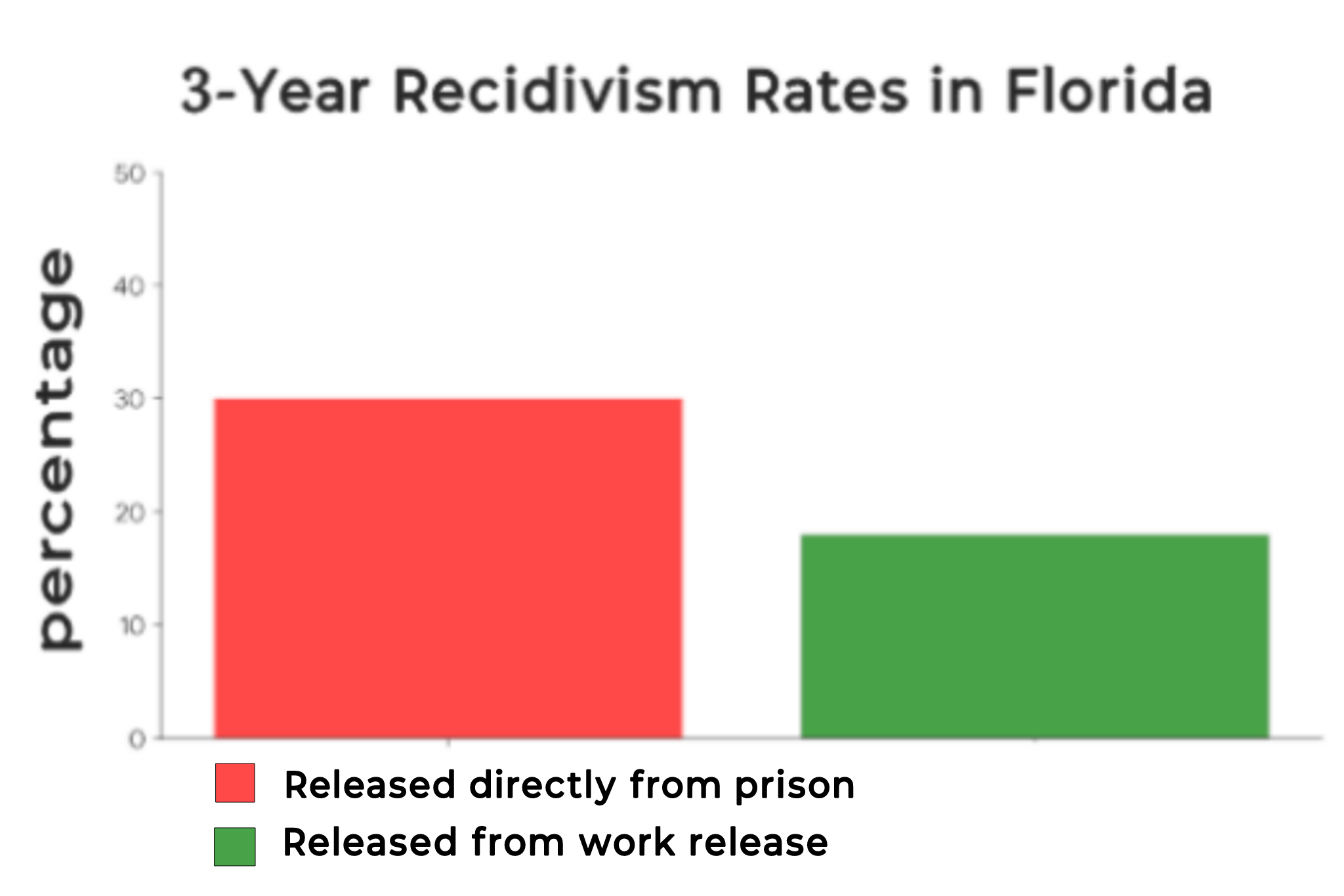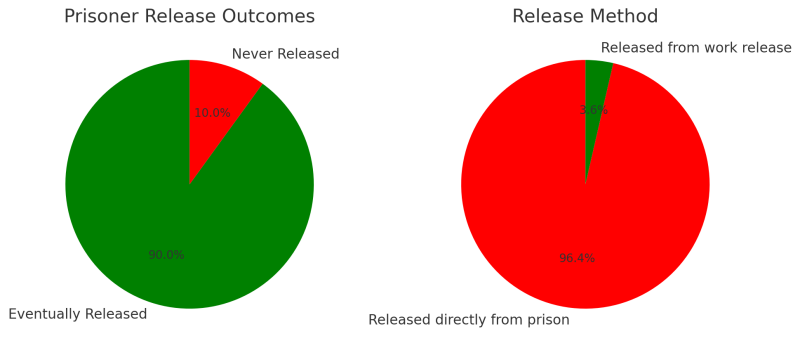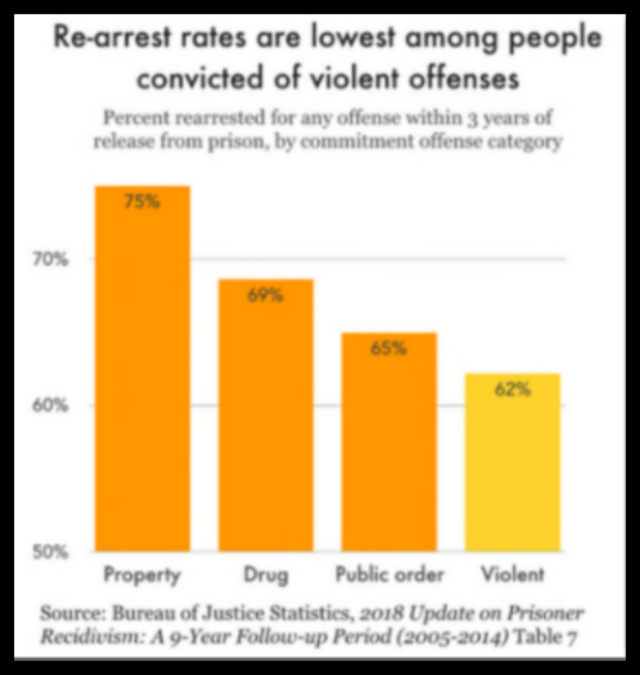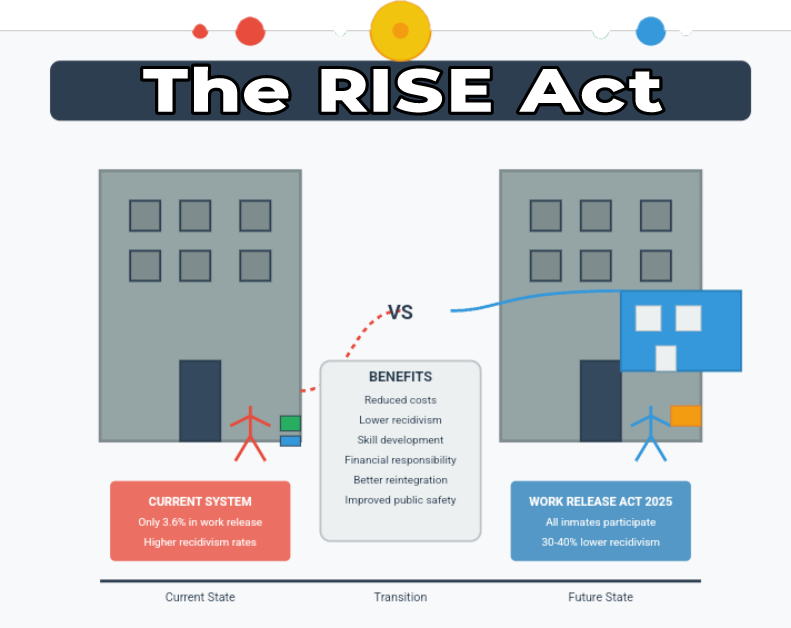The RISE Act
(Reintegration and Inmate Skill Enhancement)

Listen to our podcast
Work Release Reform: The RISE Act
Work Release Works
Participants experience 30-40% lower recidivism rates and better employment outcomes

The Critical Problem
- Only 3.6% of Florida prisoners qualify for work release
- 96.4% are released directly from confinement
- Typical release package: clothes + $50 + bus ticket

The Solution: Universal Work Release
The RISE Act requires all inmates to participate in work release during their final 6-18 months
- Prioritizes offenders with weakest support systems
- Uses existing prison facilities (no new construction)
- Allows education/vocational training as employment
- Deducts 50% of earnings for costs and restitution
Violent Offender Safeguards
- Comprehensive risk assessments
- Mandatory rehabilitation programs
- Graduated supervision with GPS monitoring
- Specialized employment pathways

Strategic Partnerships
Expected Outcomes
- Significantly reduced recidivism
- Lower incarceration costs
- Increased financial contributions
- Improved public safety

Key Benefits
- Cost-neutral implementation using existing facilities
- Proven results from current program participants
- Community protection through structured transition
Conclusion
Freedom Force Florida’s proposal offers a cost-effective and impactful model for reducing recidivism, improving public safety, and facilitating successful reentry for offenders. The program will utilize existing infrastructure, close unnecessary facilities, and generate taxpayer savings through expanded participation and higher garnishment rates. Urge your legislators to support this groundbreaking initiative.
Full text of the bill.
HB - 0000, SB - 000
A bill to be entitled
The RISE Act (Reintegration and Inmate Skill Enhancement), repealing ss. 945.091, 945,092, F.S.; creating s. 945.0910, F.S., requiring all offenders committed to the custody of the Department of Corrections to participate in work release during the last 6 to 18 months of their sentences; permitting furloughs; and requiring offenders to pay partial costs of incarceration and court costs, fines, fees, restitution, etc., while participating in work release; providing an effective date.
Be it enacted by the Legislature of the State of Florida:
Section 1. Sections 945.091 and 945.092, Florida Statutes, are repealed.
Section 2. Section 945.00910, Florida Statutes, is created to read:
Section 945.0910, The RISE Act (Reintegration and Inmate Skill Enhancement).
(1) Legislative intent.
(a) This Act shall be known as the RISE Act (Reintegration and Inmate Skill Enhancement).
(b) In order to reduce the rate of recidivism and the costs of incarceration, and to increase compliance with court ordered payments and the ease of social reintergration, it is the intent of the Legislature that every offender in the custody of the department shall participate in work release for 6 to 18 months before the expiration of his or her sentence. Further, the department may grant offenders furloughs as described in (3) of this section.
(2) Work release operations.
(a) Those offenders with the weakest support networks, and therefore the greatest need,shall be prioritized for work release participation and shall participate the longest. Need shall be determined by the average balance of the offender's trust fundaccount for the 6 months preceding the last 18 months of his or her sentence and any other factors determined to be relevant by the offender's classification officer.
(b) The department shall house and maintain work release participants separately from other offenders in existing facilities.
(c) Attending academic or vocational training not offered by the department shall be considered employment for a total of 12 months. The offender shall be solely responsible for arranging and paying for such training.
(d) Work release participants may not work at bars, clubs, or other establishments where the primary activity is the consumption of alcohol or other intoxicants.
(e) Work release participants may travel to and from their places of employment by any means except walking, but no offender may keep a vehicle at the facility to which he or she is assigned.
(f) The department shall provide transportation for new participants in the work release program who are conducting job searches or interviews.
(g) The department may levy fines for disciplinary offenses committed by work release participants. Fines shall not exceed $50 for minor infractions or $100 For major infractions. Such fines shall be deposited in the General Revenue Fund, and a receipt shall be given to the offenders.
(h) The department shall close all community correctional centers within 50 miles of an existing major institution within 3 years of the effective date of this section.
(3) Furloughs
(a) The department may grant supervised or unsupervised furloughs to any offender to visit a dying relative or to attend a relative's funeral. If the furlough is supervised, the offender bears full responsibility for the cost of supervision, which shall be provided by either the department or a law enforcement agency.
(b) The department may grant unsupervised furloughs to work release participants for the purposes of finding alternative employment or a suitable residence when released, a conjugal visit with a spouse, or to otherwise aid in the offender's rehabilitation and his or her successful transition into the community.
(c) The Secretary may grant supervised or unsupervised Furloughs to any offender for any other compelling reason consistent with the public interest.
(4) Payments
(a) Employers shall deposit the earnings of work release participants directly in the offender's trust fund account. Cash payments are not permitted.
(b) The department shall deduct 50% of the offender's earnings for the costs of incarceration and the payment of any court ordered costs, fines, fees, restitution, etc. No more than half of the deduction shall be applied to the payment of court costs, etc. The offender shall be given a receipt detailing the allocation of the withheld funds.
(5) The department shall develop rules implementing this section.
Section 2. This act shall take effect July 1, 2026..
